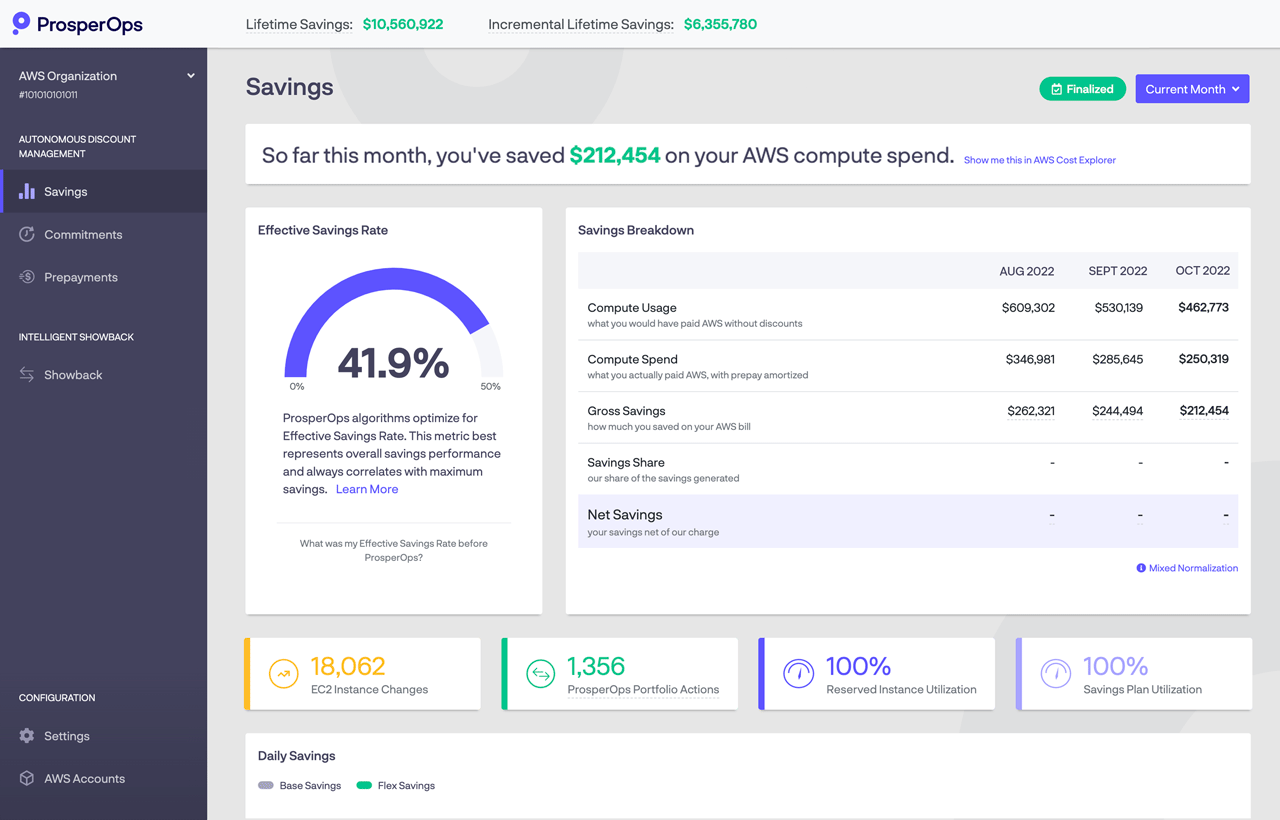The cloud is growing expensive. According to a recent survey from ESG, more than half of companies say that their spending on public cloud apps will increase in 2023 while 56% expect their public cloud infrastructure services spending will go up this year. A separate report from Gartner forecasts that worldwide spending on public cloud services will grow to total $591.8 billion in 2023, up from $490.3 billion in 2022.
The cost burden is such that many companies end up exceeding their budgets for cloud. Veritas, a cloud data management vendor, found in a 2022 poll that upwards of 94% organizations incur higher costs than anticipated when using a public cloud service provider and overspend by an average of 43%.
It’s no wonder, then, that cloud optimization software is attracting funding. One of the recent vendors to benefit is ProsperOps, which today closed a $72 million funding round led by by H.I.G. Growth Partners with participation from Active Capital and other unnamed investors.
Incredibly, prior to the investment, ProsperOps had only raised around $800,000. Co-founder and CEO Chris Cochran says that the company approached H.I.G. to “scale given the market opportunity.”
“H.I.G. specializes in high growth business-to-business software-as-a-service, is aligned with our goal of high but responsible growth, and has the financial resources to help us go big in the automation space,” Cochran told TechCrunch in an email interview. “This investment allows us to expand the scope of the work we perform for our customers and continue growing our engineering and sales teams.”
ProsperOps’ founding team, including Cochran, takes credit for starting the AWS managed services business at Rackspace. Cochran says that they saw firsthand how hard it was to optimize customer environments without automation.
“It didn’t matter how good the reporting and recommendation tools were. We were frustrated with the outcomes — or lack thereof,” Cochran said. “We started ProsperOps to leverage automation, AI and algorithmic management to help cloud customers generate better savings outcomes.”
To that end, ProsperOps provides software that automatically optimizes cloud resources to deliver savings. It assumes responsibility for reserved and savings plan management; customers configure a few high-level settings after which ProsperOps’ software learns to handle ongoing activities (e.g. day-to-day commit discount management, associated capacity planning, etc.).

Lots of cloud optimization startups claim to do the same, like Sync Computing. But Cochran claims that ProsperOps is one of the only vendors that considers customer return on investment (ROI) in terms of how its AI algorithms and automation operate. It’s also one of the few to focus on committed-use discounts, which provide discounted prices in exchange for a commitment to use a minimum level of resources for a specified term (e.g. a few months).
“Others tend to focus around inputs, which don’t necessarily result in increasing a customer’s ROI,” Cochran added. “Our service watches cloud usage in real time and dynamically optimizes on customers’ behalves.”
ProsperOps — which interestingly enough doesn’t use machine learning; Cochran said it’s unclear it’s superior to other techniques — is focused exclusively on serving AWS customers for now. He claims that the startup currently has “several hundred” customers and that it’s been profitable and debt-free since Q4 2020.
“Our customers tend to be technical and financial leaders,” Cochran said. “For the technical leader, ProsperOps means they can focus on using the cloud in the manner they want to use it and know that behind the scenes our service is monitoring what’s happening and automatically securing the best price. For the financial leader, they know they’re getting the right economics and can see that data as ROI that is trend-able and benchmarked against their peer group.”
Several years ago, the market for cloud optimization software and “FinOps,” while nascent, was consolidating as incumbents in adjacent sectors saw the opportunities presented by cloud cost optimization. Microsoft in 2017 acquired Cloudyn, which provided tools to analyze and forecast cloud spending. Then, in 2019, Apptio snatched up cloud spending management vendor Cloudability, while VMware and NetApp bought CloudHealth and Spot (formerly Spotinst), respectively, within the span of a few years.
The consolidation isn’t necessarily over, as evidenced by Intel’s $650 million purchase of Granulate last April. But ProsperOps and ProsperOps’ investors evidently believe there’s room for growth yet.
Active Capital’s Pat Matthews said in an emailed statement: “As cloud adoption continues to accelerate, tech companies and big enterprises are realizing the costs and complexities associated with AWS and the big cloud providers. ProsperOps helps these businesses save real money by automatically identifying savings opportunities that may otherwise go unnoticed. In an era where the business world races to cut cost and get more efficient, ProsperOps can help just about any business that leverages the cloud for important parts of their infrastructure stack.”
In the near term, ProsperOps plans to grow its 30-person workforce and expand to other clouds, Cochran says.































Comment